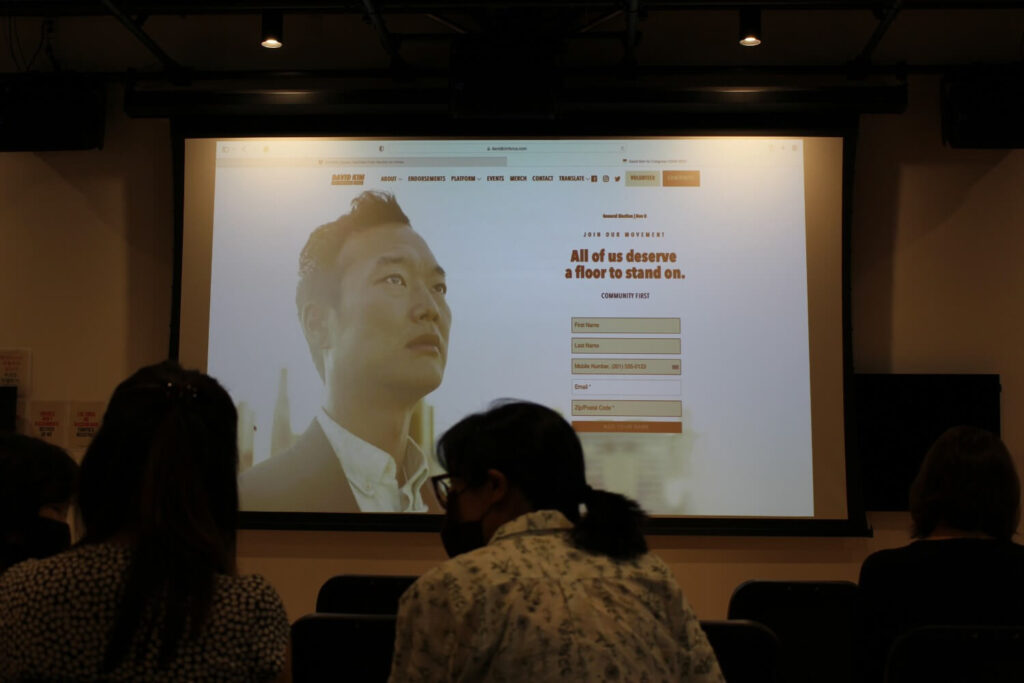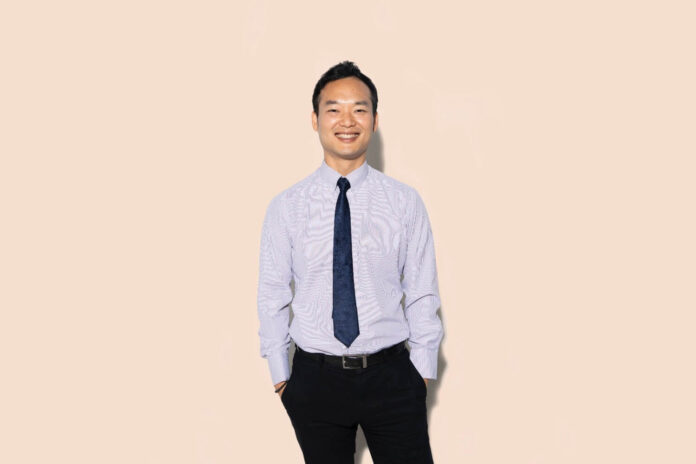“Chosen” is a documentary featuring five Korean Americans, with varied backgrounds and beliefs, who ran for U.S. Congress in 2020. Before the 2020 election, only two Korean Americans had been elected to the U.S. Congress since 1903.
“Chosen” focuses on attorney David Kim, who runs to represent California’s 34th District in the U.S. House of Representatives — CA-34 includes neighborhoods such as Eagle Rock, Highland Park, Downtown LA and Koreatown. Kim lost his race in the 2020 election, but he is currently campaigning again for the same position against the CA-34 incumbent, Jimmy Gomez.
“Chosen” screened at Oxy Arts Oct. 20 and there was also a Q&A after the screening with Kim. The director of “Chosen,” Joseph Juhn, said Kim signifies many different tension points that are complex in nature within the Korean American community.
“Some of which include maybe intergenerational tension,” Juhn said. “Also, I think he represents the ideological tension, religious tension and, most importantly, LGBTQ tension — how people of the queer community are shunned in a very conservative evangelical Christian community.”
Kim said he came out as gay to his conservative parents in February 2019, and he did not talk to his parents for 20 months after that because it became so toxic.
“It was super traumatic,” Kim said. “My mom said to me during that traumatic [time after coming out] ‘How can you do this to me? Why are you taking vengeance on us by being gay? What did I do to you?’ And I remember her saying those words and weeping so heavily because it was the end of the world for her.”
The 20 months of silence ended, Kim said, because he did not want his mom to hear that he was running for Congress from someone else.
According to Kim’s website, he believes that Congress must pass the Green New Deal to transform the U.S. energy system to 100 percent renewable energy, and he is supportive of the idea of a Universal Basic Income (UBI). A UBI would provide Americans with a regular cash payment to help alleviate economic disparities.
“We really need a fighter pushing things — that is organizing, that is fighting for big change instead of small fixes here and there and only following what the party leaders tell them,” Kim said.
The Q&A at Oxy Arts was moderated by Ina Morton ‘22, who said she met Kim through the organization she co-founded, People’s City Council (PCC). PCC is a coalition of social and climate justice organizations from LA.

“He’s endured so much in his life, and I think with that there’s a lot that is relatable to a lot of people,” Morton said. “[Something that] struck me the most was just thinking about how deeply political so many aspects of our lives are, whether you’re running for office or not.”
A volunteer for Kim’s campaign, Estar Park, is a paralegal who lives in Pasadena now, but who used to live in Koreatown. At the start of the COVID-19 pandemic in 2020, she said she was still living in Koreatown and trying to find help for the people in her building — trying to get masks and other supplies. Park said she was not able to reach Gomez, but saw that his opponent, Kim, had virtual town hall meetings.
“When I logged into the Zoom meeting I was the only one who showed up,” Park said. “It was me and David, and honestly, I was really intimidated because I had never been involved in politics or anything like that before… I was like, ‘If you want Mr. Kim I can come back at a time when there are more people, right? Not just me,’ and he’s like ‘No, I want to talk to you.’”
Park said she spent the next 30 minutes speaking to him. On the topic of accessibility, Juhn said Kim was the only candidate who gave him unlimited access to his campaign for filming. Juhn said Kim is charming and he shows his vulnerability so honestly.
“[With this documentary] I want to honestly look inward and confront any uncomfortable issues that lie within us or amongst us,” Juhn said. “Without looking at the reality of our dynamics, I think that just a call for representation is a hollow chant. I think it requires us to at least make an attempt to bridge our differences, and for us to at least come to a peaceful consensus to try to understand our parents’ generation, and our children’s generation.”
![]()
































[…] 26: The Occidental posted an article titled: ‘Chosen’ documentary brings eyes to the story of David Kim, a […]